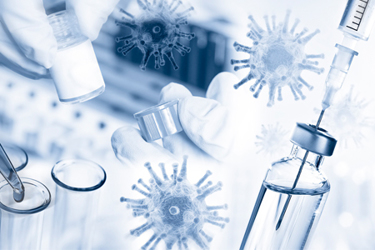Stabilizing Virus With Recombinant Albumin To Improve Yield

Virus production is an important application of cell culture systems, both for vaccine manufacturing as well as for gene therapy. During the cell culture process, the infectious particles produced are subjected to several physical stresses inherent to the cell culture system that may cause inactivation and reduce the overall productivity of the culture [1]. Specific culture parameters can be modified in order to prevent virus inactivation. For example, measles virus production has been shown to be enhanced in cell cultures by concentrating serum in the medium [2]. Likewise, a more basic culture pH has been shown to enhance harvest yields of Japanese B encephalitis virus [1]. The addition of albumin has also been shown to enhance virus yields in vitro [3]. However, the use of serum-derived proteins can drive heterogeneity of culture performance, increase the risk of introducing adventitious agents into the production system, and potentially jeopardize the availability of vaccines due to variable supply [4,5]. For this reason, development of recombinant albumin that can provide consistent stabilization is desirable. Indeed, there is evidence that recombinant albumin is beneficial for stability during lyophilization of the attenuated dengue type 2 (DEN-2), strain PDK-53 (DEN-2 PDK) vaccine [6]. Further, recombinant albumin has been utilized to stabilize viral vaccine components for human clinical use in vaccines for mumps, measles, rubella, dengue, West Nile and yellow fever, among others [5].
Here, a general protocol is described for the addition of recombinant albumin, in the form of the product Exbumin, to virus production systems to stabilize infectious particles and thereby maximize viral yield.
Get unlimited access to:
Enter your credentials below to log in. Not yet a member of Cell & Gene? Subscribe today.
